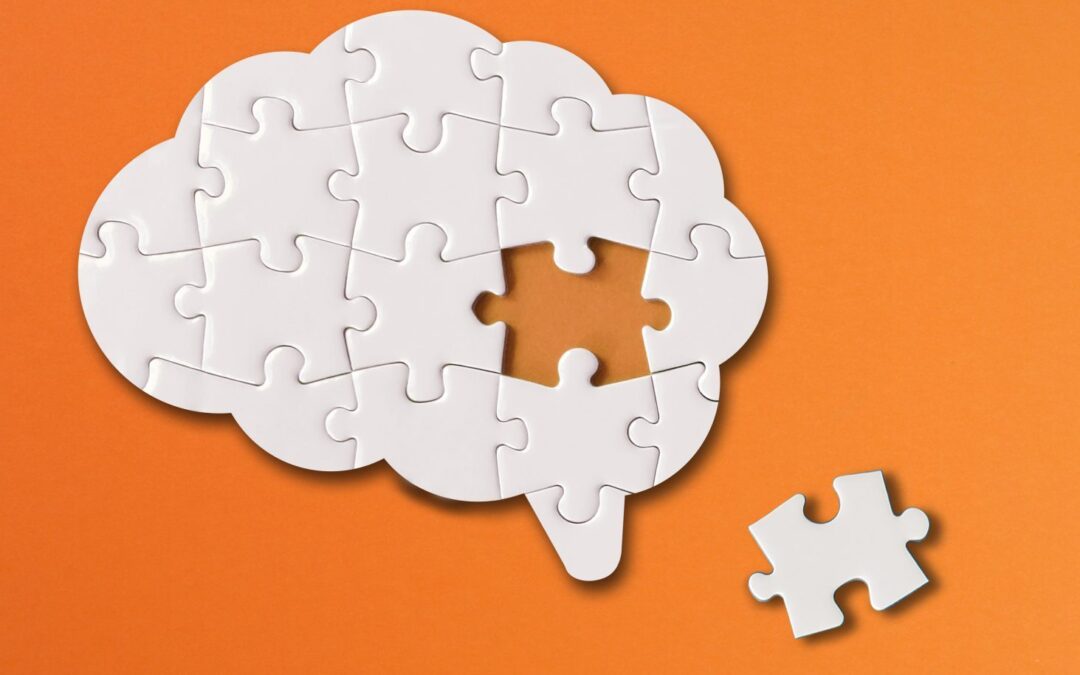Our brains are astonishingly complex organs, orchestrating everything from the fleeting pulse of thought to our deepest of our emotions. Yet, when discussing mental well-being, mental health, or eating disorders, we often resort to language that feels distant and isolating. We speak of “mental illness” in hushed tones, as if these struggles exist in some separate realm, detached from the very organ that governs our very being.
But what if we reframed the narrative? What if, instead of viewing mental health as a mysterious, stigmatized entity, we embraced it as an integral part of brain health?
This shift isn’t merely semantic; it holds profound implications. By recognizing the brain as the seat of our emotions, thoughts, and behaviors, we empower ourselves to:
- Destigmatize mental health struggles: When we acknowledge anxiety, depression, and other conditions as brain-based illnesses, they become less about personal failings and more about the need for support and treatment.
- Promote early intervention: Just as we wouldn’t ignore a physical ailment, we can prioritize brain health and seek help when we encounter mental health challenges.
- Empower ourselves to take action: Understanding the factors that influence brain health, like diet, exercise, and sleep, gives us the tools to proactively care for our mental well-being.
Let’s take a closer look.
Understanding the Brain
Imagine not just a bustling metropolis, but a multi-layered city within a city, each district specializing in a different aspect of your experience. That’s your brain: constantly humming with interconnected circuits, chemical messengers, and electrical signals.
The Executive Suite: Prefrontal Cortex
Think of this as the CEO of your mental operations. It controls planning, decision-making, reasoning, and problem-solving. It also helps regulate emotions and impulses, keeping you from acting impulsively. When this district faces difficulties, it can lead to problems with attention, planning, and emotional control.
The Memory Vault: Hippocampus
This intricate maze stores your experiences, from the mundane to the monumental. It helps navigate through life by recalling information and forming new memories. A weakened hippocampus can lead to forgetfulness and difficulty learning new things.
The Emotional Hub: Amygdala
This fiery district acts as your alarm system, processing emotions like fear, anger, and excitement. It’s responsible for the fight-or-flight response, keeping you safe in dangerous situations. However, an overactive amygdala can lead to anxiety and hypervigilance, making it hard to relax.
Cingulate Gyrus: Your Brain’s Master Shifter
Tucked within the folds of your brain lies a fascinating area called the cingulate gyrus. Shaped like a bent horseshoe, it’s earned the nickname “the brain’s master shifter” for its crucial role in orchestrating smooth transitions between our thoughts, emotions, body image, and actions.
Imagine driving: you need to change lanes to reach your destination. Your prefrontal cortex analyzes traffic and decides to make the move, but who actually shifts gears? Enter the cingulate gyrus:
- Shifting Attention: From a captivating book to a ringing phone, the cingulate gyrus helps you let go of one task and focus on the next.
- Managing Emotions: Feeling anxious during a presentation? The cingulate gyrus helps you redirect your focus and manage your emotional response.
- Making Decisions: Facing a choice? It integrates information from different areas, like memory and sensory input, to help you make an informed decision.
The Pleasure Center: Reward System
This is where dopamine, the chemical associated with pleasure and motivation, reigns supreme. It reinforces positive behaviors and keeps you reaching for rewards. Yet, an imbalance in this system can contribute to addiction or difficulty experiencing joy.
The Communication Network: Neurons and Synapses
Think of these as the bustling highways and alleyways of your brain. Neurons act as message carriers, sending electrical signals along these pathways. Synapses are the connection points where information jumps from one neuron to another. Strengthening these connections through mental stimulation can improve learning and memory.
The Chemicals: Neurotransmitters
Imagine these as the city’s messengers, delivering specific instructions to different districts. Serotonin keeps your mood balanced, dopamine fuels motivation and reward, and GABA promotes relaxation. When these chemicals are out of whack, it can lead to depression, anxiety, or sleep problems.
Brain Health and Mental Health Conditions
Just as a physical illness can affect the body, mental health conditions can impact the brain. For example, depression can disrupt the function of the prefrontal cortex, making it harder to regulate emotions and make decisions. Anxiety can heighten activity in the amygdala, leading to a heightened sense of fear and vigilance.
However, it’s important to remember that these changes are not necessarily permanent. With proper treatment, such as therapy and medication, we can restore balance to the brain and improve our mental health.
Benefits of a Brain Health Approach
Our traditional view of mental health, often shrouded in stigma and isolation, is undergoing a critical transformation. By reframing it as a crucial component of brain health, we unlock a scientifically supported approach with far-reaching benefits that extend beyond mere destigmatization. This shift offers:
Empowering Precision in Mental Wellness
Just as fingerprints are unique, so too are our brains. Recognizing this, a brain health approach prioritizes personalized strategies based on individual needs and susceptibilities. By analyzing factors like neurochemical activity, cognitive strengths and weaknesses, and genetic predispositions, we can tailor interventions to optimize emotional well-being and cognitive performance. This shift from “one-size-fits-all” to scientifically grounded precision empowers individuals to actively cultivate their own mental flourishing.
Proactive Resilience Building
Traditionally, mental health interventions primarily focused on reactive treatment. A brain health approach, however, emphasizes proactive prevention. By understanding the intricate interplay of biological, environmental, and lifestyle factors that influence brain health, we can implement preventive measures, including stress management techniques, cognitive stimulation activities, and optimized nutrition, to strengthen our neural defenses against potential mental health challenges. This proactive approach fosters resilience and equips individuals with the tools to safeguard their long-term emotional well-being.
Unleashing Peak Brain Performance
Our brains are not static entities; they possess remarkable plasticity and adaptability. A brain health approach capitalizes on this potential by promoting optimal brain performance. Through evidence-based interventions, such as cognitive training, memory-boosting exercises, and regular engagement in mentally stimulating activities, we can enhance cognitive function, sharpen focus, and unlock our brains’ full potential for creativity, problem-solving, and learning. This focus on optimizing brain performance fosters a sense of agency and empowers individuals to reach their peak mental capacity.
Bridging the Mind-Body Divide
The brain health approach recognizes the intricate and inseparable connection between our physical and mental well-being. By considering factors like sleep hygiene, nutritional choices, and physical activity alongside traditional mental health interventions, we create a holistic framework for nurturing overall well-being. This comprehensive approach fosters a deeper understanding of ourselves as integrated beings, where both physical and mental health are fundamental aspects of a thriving life.
Fostering a Culture of Compassion and Understanding
Shifting the narrative from “mental illness” to “brain health” fosters a more compassionate and inclusive environment. By viewing mental health challenges through the lens of brain biology, we break down stigma and replace it with understanding. This shift encourages open communication, reduces societal barriers to seeking help, and inspires collective efforts to create a supportive environment where individuals feel empowered to prioritize their mental well-being.
As you can see, considering mental health as brain health is not merely a semantic shift; it is a scientific and evidence-based revolution in how we understand, nurture, and celebrate our mental well-being. This approach empowers individuals to cultivate personalized pathways to resilience, optimize brain performance, bridge the mind-body divide, and foster a more compassionate and supportive world.
the road to wellness starts by seeking help. today.
Built on the principles of assertive community treatment, Galen Hope is an eating disorder and mental health treatment center offering individualized treatment options that include Intensive Outpatient (IOP), supported housing, and Partial Hospitalization Programs (PHP). As a “Community of Integrated Wellness,” we pride ourselves in fostering a thoughtful and meaningful care experience that can guide our clients on their road to recovery and increased quality of life, regardless of diagnosis. Galen Hope currently offers separate, age-specific programming for adolescents ages 12-17 and adults 18 and up, of all genders.
To learn more, or to join our community for integrated wellness, please contact us today.
Belong. Heal. Grow.
Melanie Trimble is a dedicated and compassionate Masters-level mental health professional with a passion for holistic wellness and brain health, and a Care Partner at Galen Hope in Coral Gables. As a certified Brain Health Coach, Melanie possesses a deep understanding of the intricate connection between mental and physical well-being. She is committed to providing personalized and evidence-based care to individuals struggling with mental health issues and most recently, eating disorders. By blending her knowledge of brain health with a holistic perspective, Melanie empowers clients to cultivate a positive relationship with food, body, and mind. With a genuine dedication to the well-being of others, she continues to advocate for mental health awareness and holistic approaches to healing.
This content was collaborated on with Dr. Napatia Gettings, MD, SPECT partner providing imaging for Galen Hope clients.


